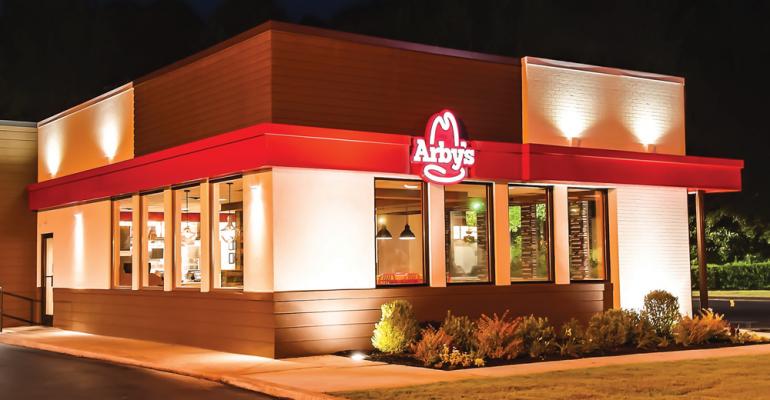 This post is part of the On the Margin blog.
This post is part of the On the Margin blog.
It’s amazing what a few years of sales growth can do to the valuation of a restaurant chain. It’s been huge for Arby’s.
In 2011, The Wendy’s Co. sold off Arby’s for $130 million in cash. That might seem cheap, especially now, but Arby’s had been struggling badly, with low unit volumes and high-cost leases.
As part of the deal, Wendy’s kept an 18.5-percent stake in the company, a stake that was valued at $30 million at the time.
That stake is worth a lot more now.
Arby’s has gone on a remarkable run, with 25 straight quarters of same-store sales increases and unit volumes that have increased 40 percent since 2010 — to $1.1 million.
At a presentation to investors on Thursday, Wendy’s executives said that its stake in Arby’s is now worth an estimated $320 million. That puts Arby’s total value at about $1.7 billion. That is a substantial improvement from 2011.
Gunther Plosch, Wendy’s CFO, noted that the $320 million is actually up from the third quarter, when Wendy’s stake in Arby’s was worth $294 million — meaning that Arby’s valuation has jumped nearly 10 percent in just three months.
That increase, he said, is not due to any perceived multiple expansion, but is based “purely on the underlying performance of Arby’s.”
In addition, Wendy’s has also received $100 million in dividends associated with that stake in Arby’s, the most recent coming in 2015.
All of this suggests that Wendy’s decision back in 2011 to keep that 18.5-percent stake was remarkably prescient. Wendy’s has received nearly as much cash in dividends that it did from the sale of more than 80 percent of the business. And the value of that stake is now nearly double the value of Arby’s entire business at the time of the sale.
One interesting benefit to the ownership that Plosch mentioned, by the way, was this: Wendy’s stake provides the company with “a potential source of cash in a liquidation event.”
Jonathan Maze, Nation’s Restaurant News senior financial editor, does not directly own stock or interest in a restaurant company.
Contact Jonathan Maze at [email protected]
Follow him on Twitter: @jonathanmaze





